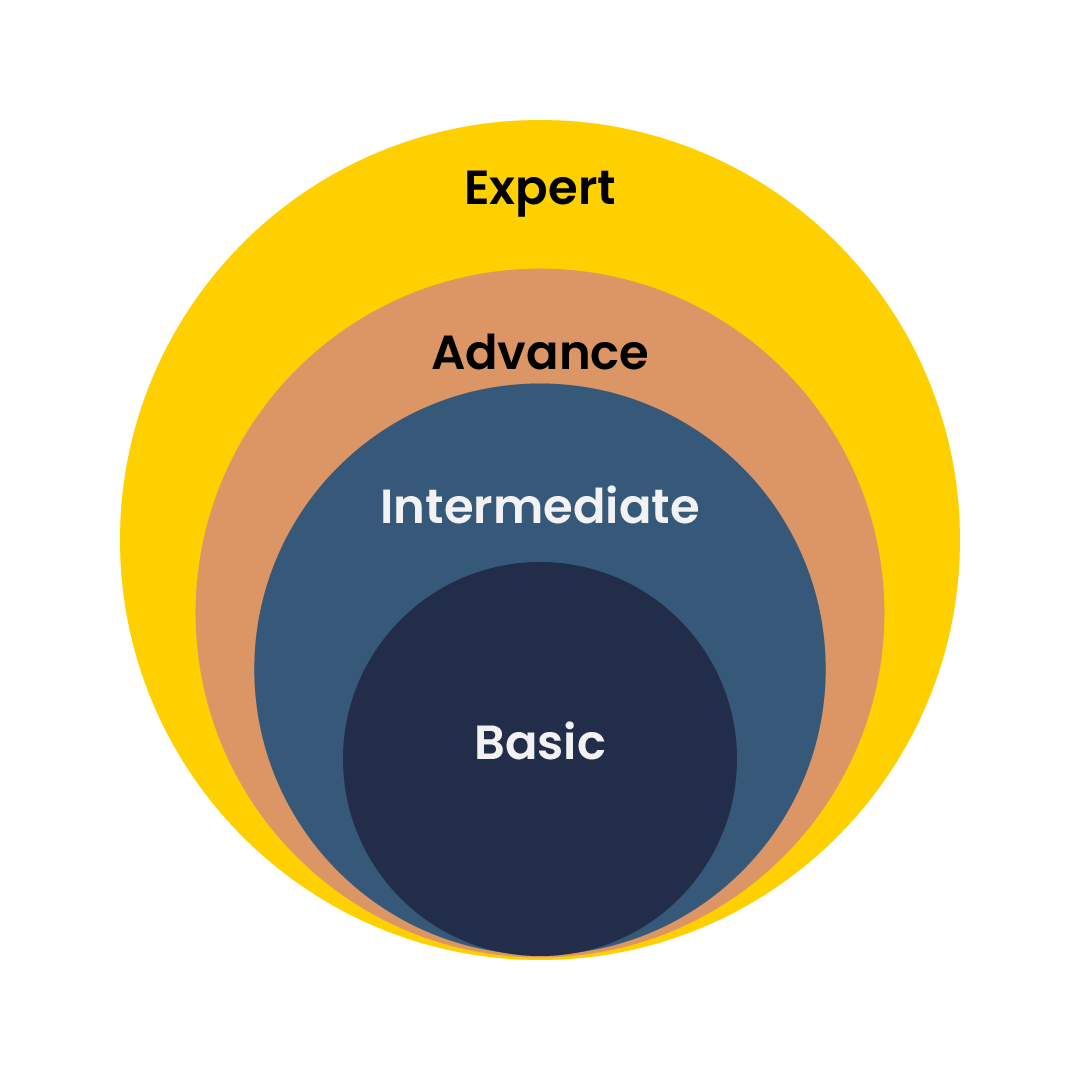The Grow Mindset
Listening time: 5:48
Thorough research into an organization is essential before an interview. This not only shows your genuine interest in the organization but also enables you to tailor your responses effectively. This type of meticulous preparation enhances your informed appearance and significantly improves your selection prospects. Upon selection, your immediate priority should be to cultivate a strong understanding of the organization.
Organizational awareness, as part of a Mérito Mindset Framework, is the capacity to "connect the dots" within an organization. It involves envisioning, interpreting, and clearly explaining the organization's various functions, available resources, and its people. This includes understanding how these components interact and align to achieve goals and foster growth.
Growth Mindset
A holistic approach to becoming a subject matter expert within your organization or profession.
Furthermore, it requires considering both internal and external factors that influence the decisions made by senior leadership. Cultivating this extensive internal and external knowledge makes you an invaluable and indispensable asset to the organization.
Entering a new role, especially one with increased responsibilities, requires a firm grasp of fundamental knowledge. The sheer volume of information can be overwhelming, akin to trying to drink from a firehose.
To effectively learn and retain this vast amount of information, it's crucial to focus on strategies like effective note-taking, bookmarking relevant web pages, and conducting regular reviews. The objective isn't to memorize every detail, but rather to establish a system for quickly locating information precisely when it's needed.
During your first two years, focus on developing organizational awareness. This means understanding your specific role and the purpose behind your tasks, as this deeper comprehension provides more meaning than simply completing duties.
Build a basic foundation of organizational awareness with the following questions in mind:
Why are my tasks necessary?
Who benefits from it?
How often are my tasks required?
What happens if my tasks are not completed on time?
Do my tasks have an impact on my co-workers or the division?
To succeed in your role, understand your responsibilities by learning the reasons behind your tasks, which will help you communicate your achievements.
As you grasp your position, research the organization's history, mission, structure, and key people. To understand the culture, study its history, leaders, and mission statement, which outlines its purpose and values.
An organizational chart can help with networking and career advancement. Building internal connections with colleagues and key contacts is also vital, as you are part of a team.
During your second and third years, as you develop a foundational understanding of the organization, your initial questions will begin to center on two critical elements: understanding how the organization operates and how you can support or collaborate with your co-workers.
Intermediate knowledge in an organizational context involves understanding operations by interpreting various information sources (policies, training, unwritten rules). It also includes prioritizing tasks and collaborating by assisting colleagues, recognizing the impact of your support. Ultimately, it involves understanding the broader organizational implications of your work within your division or the entire organization.
During years three and four, the primary focus should be on evaluating the efficiency of your organization's processes and procedures. Any necessary improvements should be explored and implemented only after a comprehensive understanding of the organization's entire operational flow, including process management and approval protocols, has been achieved.
Process improvement is a gradual endeavor. With a heightened organizational awareness, you will be able to identify solutions that comply with the organization's regulations, policies, and procedures. It is crucial to consider both the technical and regulatory aspects when enhancing operations.
Don't underestimate the power of your professional network. As your understanding of the organization deepens, so does that of your colleagues. Over time, collaborative work fosters strong, unspoken trust, creating a "circle of trust" – a group of confidants who will offer support when necessary. Remember, trust is reciprocal.
Becoming an expert is a journey of several years, not weeks or months. By your fourth and fifth years, you should be making significant contributions beyond your regular job duties. As your expertise expands, the organization will recognize your value and regard you as essential to achieving its goals.
Through strategic thinking, planning, and continuous awareness, you become a subject matter expert, which enhances your ability to influence and contribute to the organization's growth. Strategic thinking involves understanding processes, setting clear objectives, and leveraging your "circle of trust" – essential contacts who facilitate work by possessing organizational knowledge and experience. Keep in mind that this circle must be reciprocal.
Organizational awareness also requires an understanding of both internal factors, such as senior leaders' decisions, and external factors, like partners and competitors, and their impact on work.
As a subject matter expert, you will need to be continuously vigilant, recognize the importance of all information, even minor details, and develop strategic thinking and planning skills.
That’s the Grow Mindset: A Holistic Approach to Organizational Awareness.
Years 1-2: Build a foundational understanding of your role and its "why" for deeper significance.
Years 2-3: Focus on collaborative development by understanding operations and identifying opportunities for support.
Years 3-4: Optimize processes and procedures while building trust among colleagues and counterparts.
Years 4-5: Become an organizational influencer and Subject Matter Expert, with contributions recognized as instrumental for growth.
That’s the key to organizational awareness: building a strong sense of awareness for comprehending difficult decisions that impact your workload and the organization. Practice active listening, ask insightful questions, take detailed notes, and being proactive so that you can take…
“Professional growth in your hands!”
Ish and Raquel
Schedule a call with us to learn more about the Mérito Mindset

